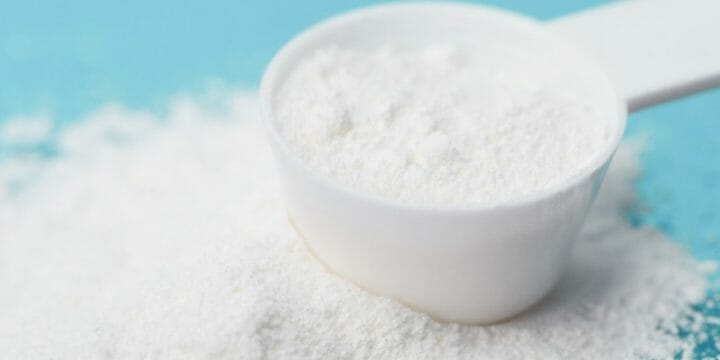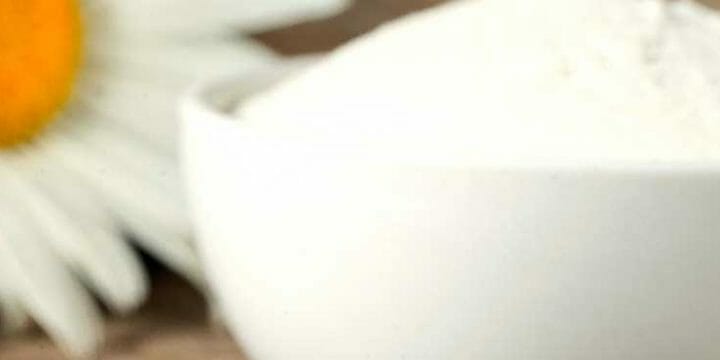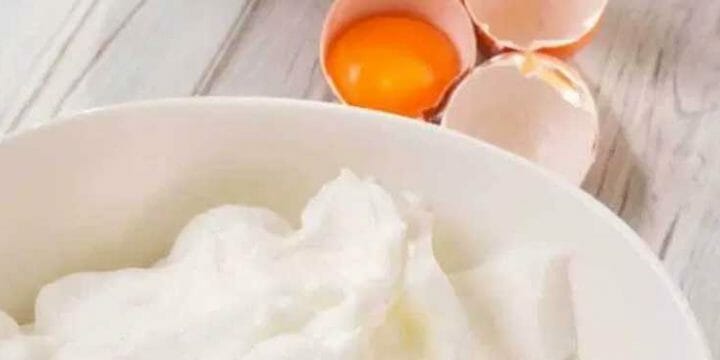My years-long experience in the fitness industry taught me that many vegans struggle to meet their ideal protein intake.
That’s why many of my vegan clients considered taking whey protein at one point or another, but most of them didn’t know what whey protein really is and if it’s vegan-friendly.
I’ve partnered with a dietitian to demystify this topic. We’ve spent hours researching scientific studies to determine whether whey is suitable for vegans and, if not, what to use instead.
Let’s first answer your question: Is whey protein vegan?
Quick Summary
- Whey protein is not vegan as it is derived from cow's milk, but there are various plant-based alternatives like pea, hemp, chia, and soy proteins.
- Whey protein is vegetarian-friendly and is a complete protein containing all essential amino acids and BCAAs, which are beneficial for muscle building.
- Whey protein comprises 20% of milk proteins, with casein being the other 80%.
- From a personal perspective, exploring plant-based protein options can be a rewarding journey for vegans seeking nutritional balance and muscle-building benefits.
Is Whey Protein Vegan?
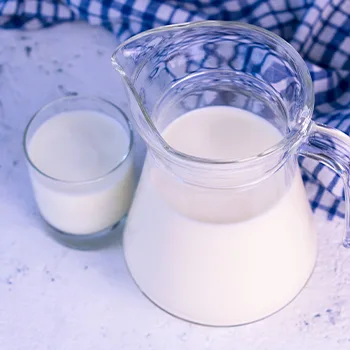
Whey protein isn’t vegan because it’s derived from cow’s milk. And vegans can’t consume cow’s milk because it’s an animal-derived product.
In my coaching experience, I've seen many vegans initially confused about whey protein.
Whey protein is made from a liquid byproduct of cheese-making that undergoes processing to be turned into a powder [1].
Liquid whey, from cheese production, is protein-rich and beneficial for those aiming for weight management or high protein diets. However, as an animal-derived product, it's not suitable for vegans or those with lactose intolerance.
Beyond its non-vegan origin, whey protein's connection to the dairy industry raises important ethical questions, particularly concerning animal welfare and labor practices in dairy farming, which are key considerations for many individuals opting for vegan lifestyles.
Also, whey proteins are one of the two most abundant types of milk proteins [2]:
- Casein (80%)
- Whey (20%)
From my coaching journey, I've learned that not all vegans need supplements. If you eat adequate amounts of whole foods, a vegetarian or vegan diet can equip you with enough protein for weight loss, muscle recovery, and your other goals, according to the Cleveland Clinic [3].
If you're not getting enough protein from your diet, consider the vegan alternatives to whey we've listed.
Remember, whey is also in many processed foods, not just supplements, due to its low cost and prevalence in cheese production.
For example, it’s present in cookies, bread, crackers, and other baked goods [4]. So, make sure you stray away from these products, too, if you’re vegan.
Is Whey Protein Vegetarian?

Through my coaching, I've advised many vegetarians that whey protein is an option for them, but not for vegans since it's dairy-based. Plant-based proteins are the go-to for vegans.
Remember, different vegetarian diets have varied rules about animal products, so choose your protein source accordingly.
There are five basic types of vegetarian diet [5]:
- Lacto-vegetarian diets: These diets exclude meat, fish, poultry, eggs, and foods that contain these ingredients. They include dairy products, like milk and cheese.
- Ovo-vegetarian diets: Ovo-vegetarian diets exclude all of the above, except for eggs.
- Lacto-ovo vegetarian diets: Lacto-ovo vegetarian diets don’t allow meat, fish, or poultry but allow dairy products and eggs.
- Pescatarian diets: Pescatarian diets only allow fish out of all animal products.
- Vegan diets: Strict vegan diets exclude all animal-derived products and foods that contain them.
So, since whey protein is found in cow’s milk, it could be considered vegetarian only if you follow a lacto-vegetarian or lacto-ovo vegetarian diet.
Vegan Alternatives to Whey Protein

So, whey products aren’t vegan. But protein is still crucial for many bodily functions and reaching your fitness goals, no matter if you want to build muscles or lose weight.
Luckily, you can use vegan-friendly, plant-based protein powders instead of whey [6]:
- Pea protein
- Soy protein
- Chia protein
- Pumpkin seed protein
- Hemp protein
- Brown rice protein
Whey Protein Powder Vs. Plant-Based Protein Powder

In my coaching experience, I've seen that choosing the right protein powder really depends on individual needs. Plant-based options have their quirks, but I've got some tips to boost their benefits.
For those considering whey protein, it's important to note its impact on digestive health, as it can offer certain benefits but may also pose challenges, especially for individuals with lactose intolerance or sensitive digestive systems.
Whey protein powders are different from plant-based protein powders in three ways.
1. The Protein Content
Whey is considered a complete protein because it contains all nine essential amino acids.
On the other hand, only a few plant proteins are considered complete, like soy and quinoa [7, 8].
Since amino acids are essential for protein synthesis and other bodily processes, you should get them from other sources, according to the National Library of Medicine [9].
For example, you can add complete proteins to your protein shakes, like hemp and chia seeds [10]. That way, you’ll satisfy all your body’s needs in one go.
2. Effectiveness In Building Muscle Mass

To grow your muscle mass, you need to consume proteins that contain all essential amino acids and BCAAs (branched-chain amino acids).
Whey protein contains both. It’s especially high in leucine, a BCAA that gives skeletal muscles energy during exercise, according to the University of Rochester Medical Center [11].
Unfortunately, that isn’t the case for all plant proteins. Some lack certain amino acids, while others are low in BCAAs.
But some, like quinoa and chia protein, contain all of that good stuff [12, 13].
Still, that doesn’t mean you have to limit your options to just these two protein powders.
According to Levels, you can enhance the qualities of any plant-based powder by adding BCAAs to your protein shake [14]. BCAAs will promote muscle growth as much as whey protein powder does.
One nutritionist also suggests eating protein throughout the day to build muscle faster [15]:
“While inclusion of high amounts of protein post-workout and at dinner is typical, in order to build muscle, it may be best to spread protein intake throughout the day. To be most accurate, the current recommendation is to consume .25-.3 grams per kg of your body weight 4-5 times per day.”
- Kelly Jones, MS, RD, CSSD, LDN
So, try to consume protein several times a day instead of all at once for maximum results.
3. Food Sensitivities
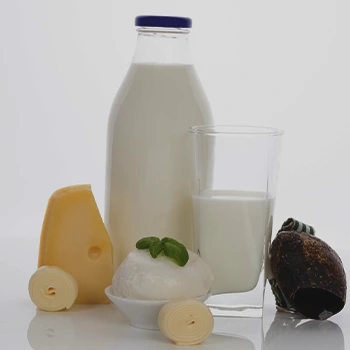
From what I've seen with my clients, whey protein's lactose content can be a problem for those with intolerances or sensitivities.
Still, you can choose between three types of whey protein. Some of them aren’t as upsetting for your stomach as the others:
- Whey protein concentrate typically contains the most lactose because it undergoes the least processing.
- Whey protein isolate typically contains less lactose because it undergoes more processing [16].
- Whey protein hydrolysate is pre-digested, so it’s easier to consume. Our bodies also digest it faster than both whey protein isolate and concentrate [17].
Related Article: Whey Protein Isolate vs Concentrate
Be aware that all forms of whey protein can cause stomach upset for those with sensitivities. Whey protein hydrolysate, the most digestible type, is also more expensive.
Conversely, plant-based protein supplements are lactose-free, potentially making them a gentler choice for your digestive system, according to the Healthline [18].
FAQs
Are Vegan Protein Powders Healthy?
In general, vegan protein powders are healthy. Still, you should always read the nutrition facts and ingredient list on the back of the product. That way, you can check if a protein powder contains unhealthy ingredients, such as too much sugar, artificial sweeteners, or other highly processed ingredients [19].
Is Vegan Protein Powder Bad for Your Kidneys?
No, vegan protein powder isn’t bad for your kidneys. Quite the contrary, new studies show that eating plant protein can improve health and lower the mortality rate in patients with CKD (chronic kidney disease) [20].
References:
- https://www.healthline.com/nutrition/whey-protein-101
- https://www.ncbi.nlm.nih.gov/pmc/articles/PMC5149046/
- https://health.clevelandclinic.org/13-of-the-best-vegetarian-and-vegan-protein-sources/
- https://www.mayoclinic.org/healthy-lifestyle/nutrition-and-healthy-eating/in-depth/vegetarian-diet/art-20046446
- https://www.mayoclinic.org/healthy-lifestyle/nutrition-and-healthy-eating/in-depth/vegetarian-diet/art-20046446
- https://www.onegreenplanet.org/natural-health/ultimate-guide-vegan-protein-powders-all-sources/
- https://www.aafp.org/pubs/afp/issues/2009/0101/p43.html
- https://www.hsph.harvard.edu/nutritionsource/food-features/quinoa/
- https://www.ncbi.nlm.nih.gov/books/NBK234922
- https://www.medicalnewstoday.com/articles/321474
- https://www.urmc.rochester.edu/encyclopedia/content.aspx
- https://lazyplant.com/chia-seeds-protein/
- https://michaellustgarten.com/2014/07/30/which-grain-is-the-best-source-for-protein-essential-amino-acids-bcaa-and-arginine/
- https://levelsprotein.com/blogs/supplements/bcaa-vs-protein-powder
- http://kellyjonesnutrition.com/build-muscle-with-plant-protein/
- https://www.healthline.com/nutrition/whey-protein-isolate-vs-concentrate
- https://progenexfit.com
- https://www.healthline.com/nutrition/whey-vs-plant-protein
- https://chatgptmarketing.medium.com/your-vegan-protein-powder-is-not-healthy-34437e256b04
- https://www.ajkd.org/article/S0272-6386(15)01339-6/abstract
About The Author
You May Also Like

